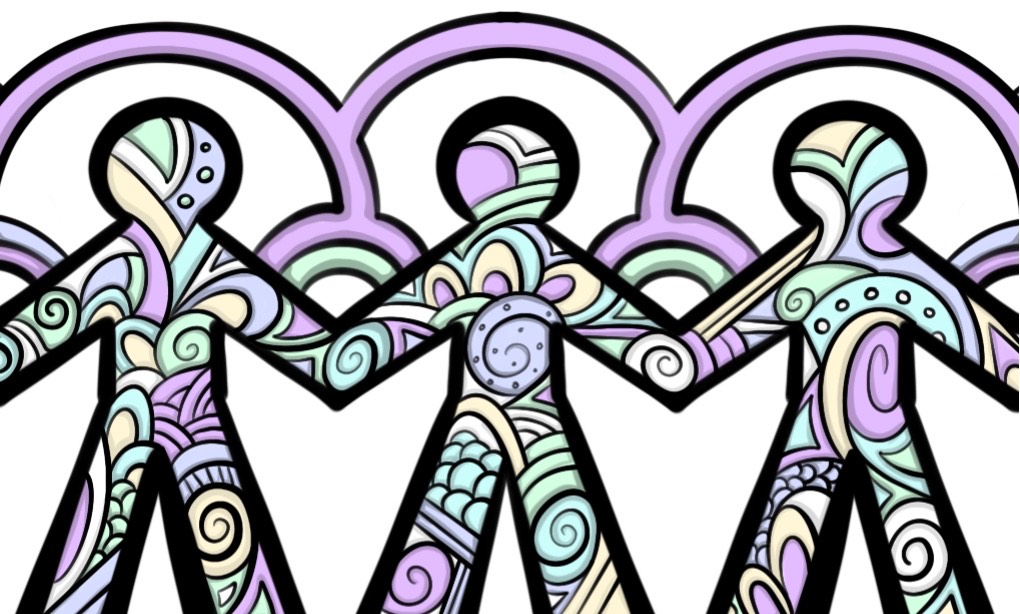Ever since the beginning of time, civilizations have relied on each other for social interactions and societal progress. Social interactions have always depended heavily on trust and on how well we can have faith in one another.
Trust is a complex concept because it involves personal and human connections and being able to rely on others. In such a hyper-independent country where we are all in our own worlds, trust is a nuanced idea. In fact, “David Halpern and Robert Putnam have been looking at trust across countries, and give countries like the United States and the United Kingdom a middling grade when it comes to trust… The United States lies in the 30–40 percent range” (Hoelting). As obvious, the United States does not have an ideal trust rating. This influences other aspects of society such as how well our community can tackle an issue, or even on a bigger scale, how to address a problem like the pandemic.
Building trust is, by no doubt, something that takes time. It requires understanding, patience, empathy and loyalty. In order to help us understand why our communities lack trust, we’ll go over the barriers that prevent us from building it in the first place, its effects, and how we can work towards building more trust in our communities.
So why do our communities lack trust?
This question requires considering many dynamic perspectives as we attempt to answer it. Firstly, under the international lens, it’s proven that communities have more trust when they are homogenous and egalitarian. In other words, equal opportunities for people and a fair standard of justice leads to trust. Although our country tries to emphasize equality, there are still barriers that prevent us from allowing equal opportunities to all. Some of these are financial barriers while others are simply prejudices that people have internalized towards specific marginalized groups (“Americans and Social Trust: Who, Where and Why”). In another Pew Research Center study where Americans were asked why they don’t trust each other, the findings were that “they cite social and policy woes, such as a perception that Americans are increasingly living with loneliness and isolation, as well as the nation’s continuing struggles with race relations, crime, and religion versus secularism. They also call out others’ personal traits such as laziness, greed and dishonesty” (“Americans’ Trust in Other Americans”).
I genuinely believe that America’s division in different social and political issues fuels struggles with trust because people are scared of opening up their mindsets to other perspectives. When we trust in each other, we are vulnerable and sacrifice a part of our security. This is uncomfortable and hence, we are doing it. This causes our communities to be divided and self-interested.
Effects of not having trust in communities
When we don’t have trust in our communities, the effects are widespread. For starters, we feel isolated and see polarization. Often, our mindsets fight each other rather than unite against one front. We feel like we are constantly being judged and are under the “spotlight” effect. In times of difficulties, we believe that we are fending for ourselves and that we can’t rely on each other.
Sometimes, trust issues in the community are seen on a smaller, but still more important scale. For example, in academic schools and their surrounding communities, we face trust issues telling people about our academics and extracurriculars because we feel like they’ll just compete against us and steal our destinies. Trust issues in our communities isolates us, when actually trust is a natural instinct that should be fostered. So how do we end up building and spreading trust?

How do we build trust in communities?
In order to help rebuild trust in the communities that lack it, there are four simple steps that can help mobilize the public in that direction. They are:
- Having free and impartial channels of communication – First off, have open communications about what’s happening in the community, whether that be through newspapers or online articles.
- Educating the public – Offer help and resources, and educate people on communal issues that need to be resolved.
- Involving more point of views when making rules – Another way trust can be built in communities is by having meetings or having more representation when making legislation so that different perspectives can be accepted. Such a solution can work better for a greater majority. When people feel heard, they feel comfortable, and that’s one step closer to building trust.
- Training and holding community events – We can also bring in effective training programs and mentors for younger generations and hold more community events, whether that be a simple movie night at the park or a farmers’ market to foster more connections between community members (Hoelting).
At the end of the day, trust is something that has to be invested in by all parts of a community, and in order to get anywhere, we need to start somewhere.
References:
- “Americans and Social Trust: Who, Where and Why.” Pew Research Center’s Social & Demographic Trends Project. Last modified May 30, 2020. https://www.pewresearch.org/social-trends/2007/02/22/americans-and-social-trust-who-where-and-why/.
- “Americans’ Trust in Other Americans.” Pew Research Center – U.S. Politics & Policy. Last modified May 30, 2020. https://www.pewresearch.org/politics/2019/07/22/the-state-of-personal-trust/.
- Hoelting, Joyce. “Building Trust in Communities.” Extension at the University of Minnesota. Last modified 2017. https://extension.umn.edu/vital-connections/building-trust-communities.























